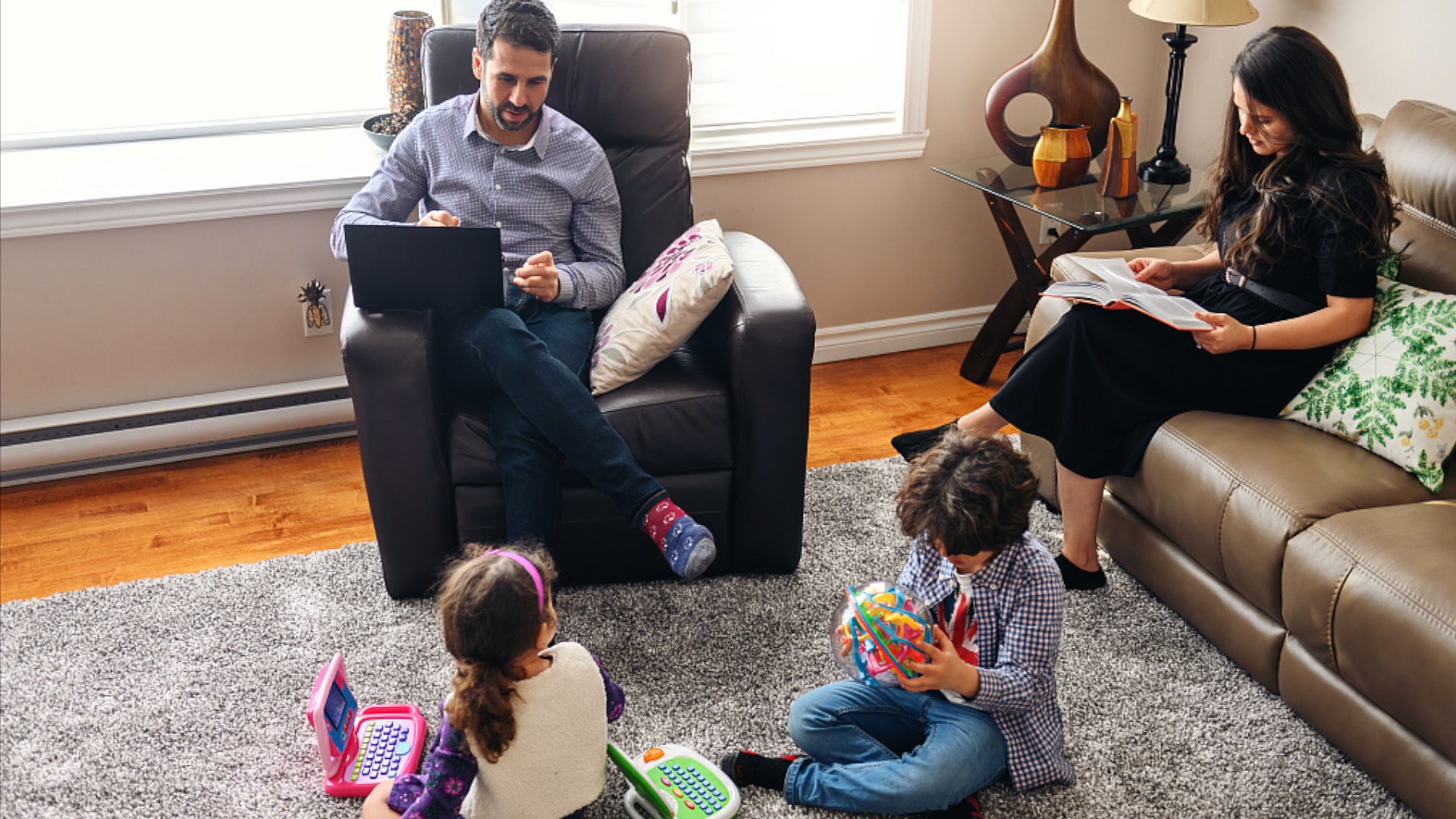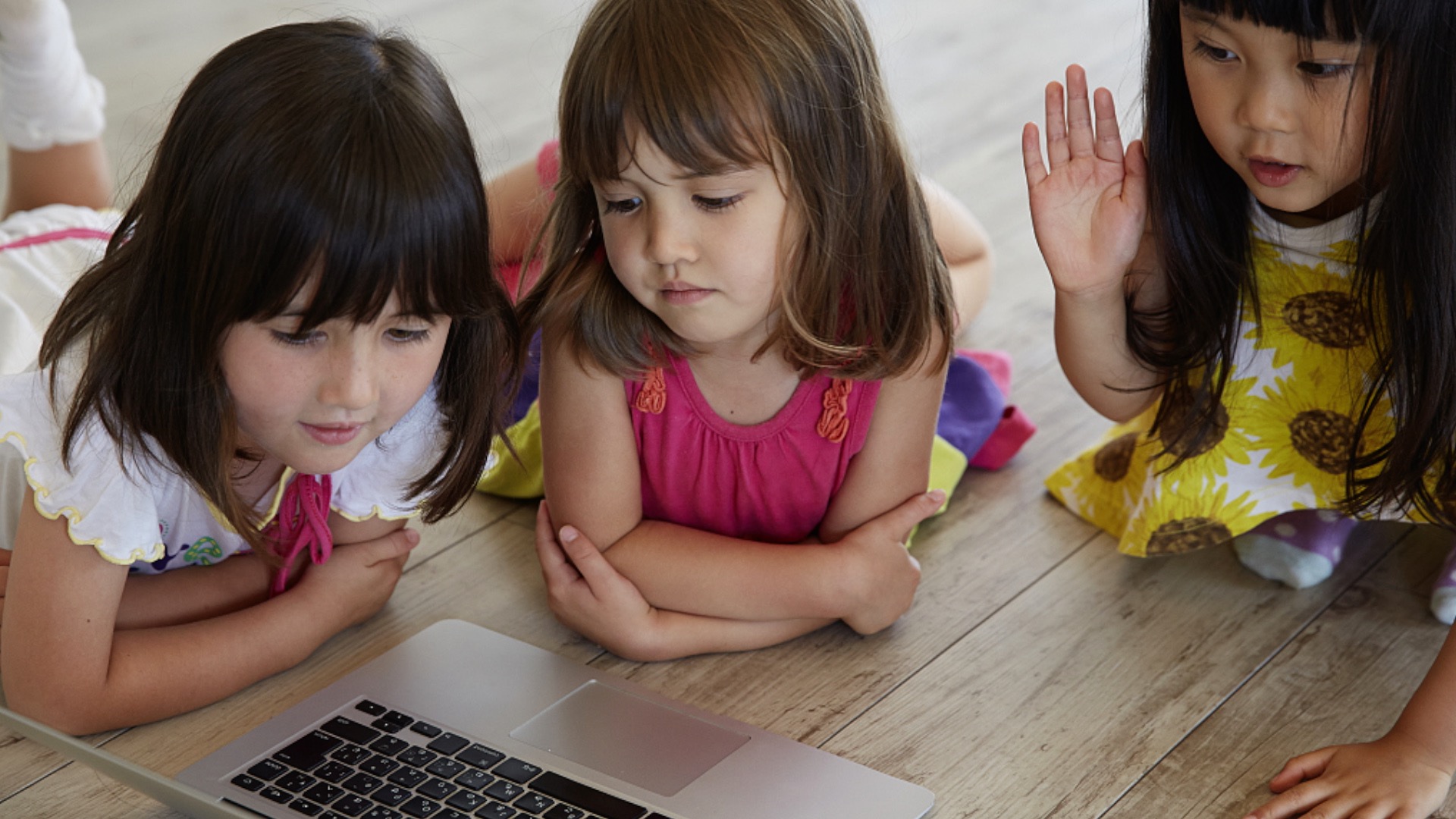The COVID-19 pandemic has closed schools around the world, with parents and students adapting to the new world of online learning. While this is a critical way to practice social distancing, it can be disruptive.
So how have families dealt with the changes? Five families from China, the U.S. and Canada shared their stories on a special episode of CGTN's livestream program "COVID-19 Frontline."
Live: How do families with children cope with changes brought by COVID-19?
05:11

Ways to keep children healthy and happy at home
Children are naturally energetic and curious about the outside world. So finding ways to keep them healthy and happy at home has been a challenge for all parents.
Chen Chen, a pediatrician with specialty in neurology at Xiangya Hospital of Central South University, said that she often discusses about the coronavirus at home with her six-year-old son Danny and let him understand what's going on. She also teaches him to develop the habits of wearing masks and washing hands carefully with sanitizers, so that the kid knows how to protect himself from getting infected.
Besides, she said the parents should spend some quality time with their children and keep them busy with some interesting activities. For example, she has done a lot of handcrafts with her son during the time, which Danny has enjoyed a lot.
Dr. Chen's experience was echoed by Krista Winward, a high school counselor in the U.S. and a mother of two young girls. She has arranged a series of colorful activities for her daughters, including painting, making handcrafts, baking bread, reading and hiking.
"They have learned things they don't normally have time to learn, like baking bread," she said.
Yang Weihan, an educator based in southwestern China and father of a six-year-old boy, said he's also encouraged his son to follow his interests, such as painting pictures of superheroes he's seen in U.S. movies.
"For parents, you need to be like kids, think like kids, and do things with them like kids," he noted.
04:28

Challenges and benefits
For almost all kids, online classes have become the new norm.
Andrew Bao, an eight-year-old boy based in Canada, said the biggest challenge is figuring out how to organize his workload, especially since it's easy to wander and get distracted while taking classes online.
Mrs. Winward's niece Sadie, an 11-year-old girl, said learning online is harder than in school because there are no teachers and classmates to help when she encounters a problem.
But the kids also see benefits of online education.
Andrew said it's been a good way to learn more about the internet and get used to it, since much of the future of work will involve technology.
Athena, an 11-year-old Chinese girl, said she prefers to learn online independently because she can go at her own pace and she progresses faster than the majority of her classmates. Besides, learning online allows her to re-watch the video classes any time she wants. "When you learn physically, the teacher usually only explains it once," she noted.
Precious bonding time
Although the coronavirus has disrupted a large part of the normal life, parents and children said they've found opportunities to spend quality time together.
Starting from mid-March, the Winward's has been under home isolation for 12 weeks. But Mrs. Winward called the time "a blessing" for her family.
"Our lives are so busy with so many things, so now we're able to slow down and spend time together with the family, and focus on what's important. It's been a gift in my family. I think it even changed how I look at things," she said.
Athena's father Yitwah Cheung, a math professor at Tsinghua University, said the time has allowed him to be more engaged in their daily lives.
Yang Weihan agreed. "For me, it's a once in a lifetime chance to be with my kid for such a long time. I enjoy it, most of the time," he said.